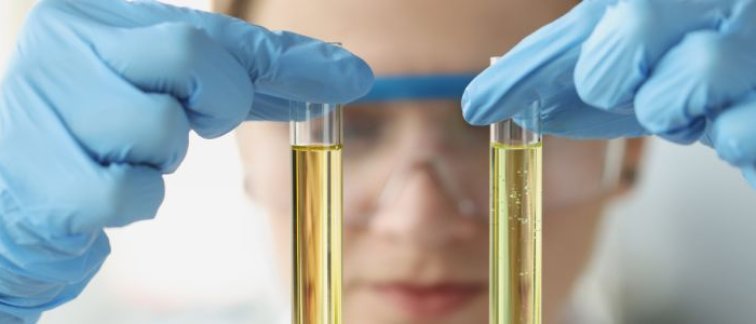Opened in October 2017 with funding from the Cancer Center Amsterdam Foundation, our Liquid Biopsy Center coordinates the centralized collection and storage logistics for oncology samples at the Amsterdam UMC Biobank. Over 2,500 patients from many clinical departments at the Cancer Center Amsterdam have already contributed to Liquid Biopsy Center, with over 5,000 samples in the bank, together with pseudonymized clinical data. Importantly, the centralized logistics and harmonized processing protocols make all samples comparable in quality and thus suitable for in depth cancer research investigations like biomarker discovery.
Blood is filled with valuable information, it can tell us such things as whether we have a tumor, how it is developing, where it is located, what it is made of, and how it will respond to certain treatments." - Dr. Michiel Pegtel, Head of the Cancer Center Amsterdam Liquid Biopsy Center.
A control sample void
“Our Liquid Biopsy Center aims to accelerate the development of novel non-invasive liquid biopsy techniques for the detection and monitoring of cancer,” says Dr. Maarten Bijlsma, Co-Head of the Liquid Biopsy Center, location Meibergdreef. “We are building a robust biobank thanks to the generosity of our patients with cancer. However, our scientists are also in need of control samples from cancer-free volunteers. These samples are compared to the cancer patients’ samples to help detect differences. In practice, we have recruited our colleagues for blood or urine donations to serve as experimental controls. But co-workers are in general much younger than our patients with cancer, and this age difference limits the usefulness of the control samples because many biomarkers change as we age.”
Spouse Program
Dr. Michiel Pegtel continues: “To fill the void of age-matched control samples, we initiated the 'Spouse Program’. Patients with cancer generally see their treating physicians together with their spouse. As a couple, these individuals are usually of similar age and share many life-style features, which is really important when it comes to control samples.” Although it is called ‘Spouse Program’, relatives or friends of a patient with cancer are also welcome to contribute. Spouse Program participants do not have to show a clean bill of health, but a diagnosis of cancer within the last 5 years excludes the donation from being used as a control sample. Dr. Pegtel: “It is important to note that participation in the spouse Program is completely voluntary and all personal data are pseudonymized. Participation of a spouse does not in any way change or influence the treatment of the patient, and privacy and freedom of choice are of utmost importance.”
For information on Spouse Program or the availability of samples and issuance procedures contact:
Dr. Wendy Onstenk (Liquid Biopsy Center project leader, w.onstenk@amsterdamumc.nl),
Dr. Michiel Pegtel (Head of the Liquid Biopsy Center, d.pegtel@amsterdamumc.nl) or
Dr. Maarten Bijlsma (Co-Head of the Liquid Biopsy Center, location Meibergdreef, m.f.bijlsma@amsterdamumc.nl).
Information provided by Wendy Onstenk, text by Henri van de Vrugt

